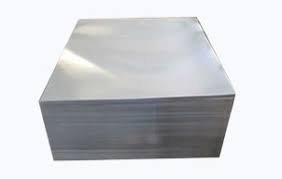Get A Quote
BIS Certification for Cold-reduced Electrolytic Tin Plate IS 1993: 2018

BIS Certification
for Cold-reduced Electrolytic Tin Plate IS 1993:2018 guarantees that tinplate
goods fulfil the Bureau of Indian Standards' (BIS) exacting safety and quality
requirements. Manufacturers and importers who want to sell these goods in India
must get this certification.
The specifications for single and double cold-reduced mild steel electrolytic tinplate are outlined in IS 1993:2018. These standards include tensile characteristics, hardness, tin coating mass, and dimensions. Adherence to these guidelines ensures customer safety and product dependability.
Introduction
These steel
products are guaranteed to satisfy the safety and quality standards set out in
the Steel & Steel Products (Quality Control) Order, 2024, thanks to the
Bureau of Indian Standards' (BIS) Certification for Cold-reduced Electrolytic
Tin Plate IS 1993:2018. This order requires all producers and importers to get
BIS certification for Cold-reduced Electrolytic Tin Plate IS 1993:2018 to sell
their goods in the Indian market, with effect from February 5, 2024. Compliance
entails acquiring the Standard Mark (ISI Mark) from BIS and following the
guidelines provided in IS 1993:2018, which is in line with ISO 11949:2016.
Why is BIS certification necessary for Cold-reduced
Electrolytic Tin Plate IS 1993 : 2018?
According to the
Ministry of Steel's Steel and Steel Products (Quality Control) Order, 2024,
Cold-reduced Electrolytic Tin Plate IS 1993:2018 must have BIS certification.
This certification guarantees safety, dependability, and consumer protection by
ensuring that the product complies with quality requirements. This
accreditation is necessary for importers and manufacturers to lawfully sell
their goods in India. Penalties for noncompliance include fines and product
confiscation.
Overview of Indian Standard IS 1993 : 2018
Aspects such as chemical composition, tin purity,
surface polish, passivation, oiling, defects, tin coating mass, hardness,
tensile qualities, dimensions, and tolerances are all covered in the Indian
Standard IS 1993:2018, which outlines specifications for cold-reduced
electrolytic tinplate. ISO 11949:2016 is in line with this standard. Manufacturers
and importers must get BIS Certification for Cold-reduced Electrolytic Tin
Plate IS 1993:2018 in accordance with the Steel and Steel Products (Quality
Control) Order, 2024, in order to guarantee compliance and market access in
India.
Process for BIS Certification
The BIS
certification process for Cold-reduced Electrolytic
Tin Plate IS 1993 : 2018 involves multiple steps designed to thoroughly
evaluate a product's compliance with the required standards. Here is a general
overview of the certification process:
1. Application Submission: Manufacturers must submit an application form
along with the required documentation to BIS.
2. Documentation Review: BIS reviews the submitted documents to ensure
completeness and correctness.
3. Factory Inspection: BIS officials conduct an on-site inspection of
the manufacturing facility to assess the production process and quality control
measures.
4. Sample Testing: Product samples are taken and tested in BIS-approved
laboratories to verify compliance with Indian standards.
5. Certification Grant: Upon successful completion of the inspection and
testing, BIS grants certification, allowing the manufacturer to use the BIS
mark on their products.
Documents Required for BIS Certification
To apply for BIS certification, manufacturers need to submit the following documents:
● Application form
● Manufacturing process details
● Quality control plan
● Test reports from BIS-approved laboratories
● Factory layout and equipment details
● Proof of business registration
● Product specifications and technical details
● Declaration of conformity to Indian standards
Additionally, manufacturers may be required to provide proof of compliance with environmental and safety regulations, depending on the specific type of product being certified.
BIS ISI Mark Certification Costing And Timeline
To Know The Process in Detail, Please Visit:
Under BIS Registration Products ISI and CRS
Conclusion
It is imperative that EVTL obtain BIS Certification
for Cold-reduced Electrolytic Tin Plate IS 1993:2018 in order to guarantee
adherence to Indian quality requirements and gain access to the local market.
All of these items must meet the stipulated Indian Standard and bear the
Standard Mark (ISI Mark) in order to be certified, as required by the Ministry
of Steel's Quality Control Order, which goes into effect on February 5, 2024.
Thorough evaluations of production procedures and quality control procedures
are necessary to obtain this accreditation. In addition to fulfilling legal
criteria, EVTL's acquisition of BIS Certification for Cold-reduced Electrolytic
Tin Plate IS 1993:2018 shows that it is dedicated to producing high-quality
goods, fostering consumer confidence, and fortifying its place in the cutthroat
industry.
Free Call Back
Latest News & Update
📅 BIS Critical Component List (CCL) Updates for Solar PV Modules
🕒 BIS Fee Concessions for MSMEs and Startups | EVTL India
📅 Guidelines for Implementation of Essential Requirements for Security of CCTV
🕒 Omnibus Technical Regulation (OTR) Amendment Order, 2025
🕒 Extension of Timeline for Filing Annual Returns by Battery Producers
📅 Extension of Timeline for Filing Quarterly and Annual Returns for E-Waste
🕒 Extension of Concurrent Running Period for IS 302-1: 2008 and IS 302 (Part 1): 2024
🕒 BIS Guidelines for Grant of Licence (GoL) | EVTL India
📅 CPCB Guidance on filing of Application, Fees and more
🕒 CPCB Notification on Labelling of Plastic Packaging
📅 Mandatory Compliance for Input Materials of Steel and Steel Products for Imports
🕒 BIS Guidelines for Scheme-X Certification for OTR-Regulated Products
📅 BIS Upgrades Product Certification License Numbers to 10-Digit Series
🕒 BIS Certification No Longer Mandatory for 14 Chemical & Polymer Categories
Why Choose EVTL INDIA
Expertise in Indian Regulatory Standards
End-to-End Support
Trusted by Top Indian & Global Brands
Fast Processing & Transparent Pricing
Strong Liaison with Indian Authorities
Company Profile














